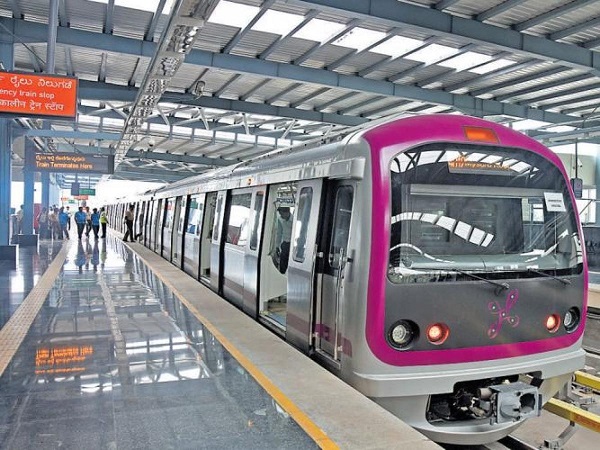Namma Metro’s patronage has increased by more than one lakh after the opening of three new reaches in the past two years.
During the pre-pandemic days, 4.8 lakh passengers opted for Metro services. In 2021, Bangalore Metro Rail Corporation Limited (BMRCL) opened close to 14km of lines (6-km Green Line extension from Yelachenahalli to Silk Institute and 7.5-km Purple Line extension from Mysuru Road to Kengeri). In March 2023, 13.7km of extended Metro line from KR Puram to Kadugodi (Whitefield) was opened for the public.
Commercial operations on the new stretches have pushed the daily passenger traffic on Metro trains to over 6.1 lakh — a 25% jump in two years. BMRCL, the agency running Namma Metro, is also generating a daily revenue of nearly Rs 1.9 crore from its train operations.
BMRCL MD Anjum Parwez told that at present, a Metro passenger travels on average a distance of 10km a day and spends Rs 27-30. “Opening of new Metro lines helps in getting more patronage. However, our projected ridership is more than what we are getting right now. It should have been 7.5 to 8 lakh per day. Once we open the entire network from Kengeri to Whitefield, we will get an additional 70,000 to 80,000 passengers. At present, the KR Puram to Whitefield Metro line is operating in isolation and, on average, 30,000 passengers are using the service,” said Parwez.
In his budget speech on Friday, chief minister Siddaramaiah had announced that in the next three years, Namma Metro’s operational network would touch 176km.
“Opening of the ORR-airport line (Central Silk Board to Kempegowda International Airport) and Kalena Agrahara to Nagawara will increase ridership exponentially,” added Parwez.
Metro’s current operational network is 70km. BMRCL is working on signalling and other systems between KR Puram and Byappanahalli to start commercial operations by August. Another Purple Line stretch — from Kengeri to Challaghatta — will also be opened around the same time. To cater to the demand, BMRCL is running 47 sets of trains (each comprising 6 coaches) on both Purple and Green lines. Every day, 290 round-trips are operated. “A Metro train can carry up to 1,800 passengers at a time. We are running adequate number of trains to cater to the demand,” said another official.
Among the commuters, 60% use Metro smart cards and 32% tokens. Seven per cent purchase QR-based tickets. The NationalCommon Mobility Card, which was allowed in Metro trains in March, has less than 1% takers.
Metro officials said the top five stations that receive the highest footfall are Byappanahalli, Majestic, MG Road, Nagasandra and Sampige Road. The lowest count has been recorded at Channasandra, Hoodi Junction, Seetharampalya, Talaghattapura and Peenya Industry.





